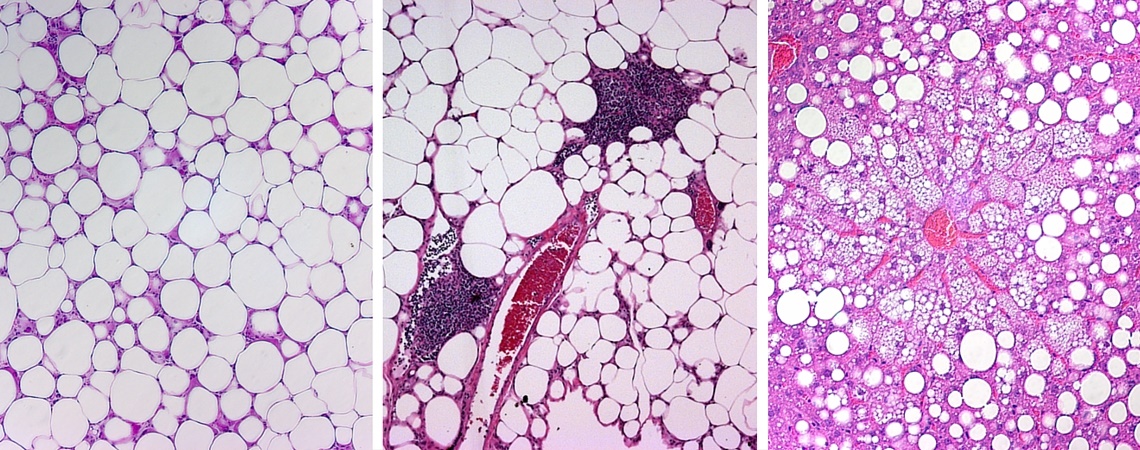Curriculum Requirements
The first year curriculum, capped by the program’s own Organ Physiology course, is comprehensive in scope and provides each of our students with an incredible foundation of scientific knowledge. Through three 10-week rotations, students select a lab to perform their dissertation research working in a field that excites their curiosity and in an environment that is both nurturing and challenging.
From start to finish, our students’ communication skills are continuously honed through regular presentations to the department. Every trainee is encouraged to apply for fellowships and awards, and other career building opportunities.
First Year Required Curriculum
| Fall | Winter | Spring |
|---|---|---|
|
|
|
Lab Rotations
Research in the first year is in the form of three research rotations in different laboratories, each lasting approximately 10 weeks. The purpose of the research rotations are:
- to allow students and mentors to identify a good match for subsequent thesis research,
- to provide the student with technical and scientific skills in several specialized areas of physiology, and
- to strengthen social interactions within the program and its member laboratories.
Rotations must be completed with a faculty member that is affiliated with the CMP program. An updated list of CMP faculty is available upon request. At the end of each rotation, students will present their results at the Friday Seminar series, as scheduled by the program.
Graduate Board Oral Examination
Each student must pass an oral qualifying exam, which must occur by the end of March of the second year in the program. The goals of the exam are to test the depth and breadth of knowledge as covered in the first-year coursework and to examine the student’s ability to design and interpret experiments.
Program Requirements, Years 1-5
| First Year | Second Year | Third – Fifth Year |
| Complete required coursework | Continue research in chosen lab | Continue Research in chosen lab, participation in research seminars and Journal Club |
Complete three lab rotations.
|
Continued attendance at Physiology seminars and Journal Club | Annual Thesis Committee meetings
|
| Choose a lab to continue research in (June of Year One) |
Graduate Board Examination (Between Jan 1 and Mar 31) |
Four elective courses, to be completed prior to graduation
|
| 1st Committee Meeting (by August 15) | Dissertation and Thesis Seminar |
Thesis Proposal & Committee
The thesis committee consists of the advisor and a minimum of three additional faculty (full-time Johns Hopkins faculty that are assistant professors or above) who are knowledgeable in the relevant field of study and whose expertise may be beneficial to the students project. There are no other restrictions on the composition of the committee, but it must be approved by the student’s advisor. The thesis committee formally meets annually.
The first thesis meeting must occur no later than August 15th at the end of the second year. A thesis proposal, typically in the format of an NIH fellowship application, is prepared for the first meeting of a student’s thesis committee
The focus of subsequent meetings is on progress made in the year since the last thesis committee meeting and plans for the upcoming year. Through these meeting, the thesis committee monitors progress and ultimately decides when the research is sufficient for completion of degree requirements.
Prior to each annual thesis committee meeting, a mentoring meeting between the student and the advisor must occur. To facilitate the discussion, the two parties complete the mentoring form separately, discuss their notes at the mentoring meeting and create an action plan. The advisor and the student should keep a record of the forms and the action plan.
For students in the third and subsequent years, the meeting should involve a discussion of both progress and plans for the future. It is this committee that decides when the research is sufficient for completion of degree requirements.
Prior to each annual thesis committee meeting, a mentoring meeting between the student and the advisor must occur. To facilitate the discussion, the two parties complete the mentoring form separately, discuss their notes at the mentoring meeting and create an action plan. The advisor and the student should keep a record of the forms and the action plan.
Electives
Four electives must be completed as a part of the degree requirements. These electives can be completed at any time prior to graduation, while enrolled in the CMP program. Selection of these courses are influenced by a student’s dissertation project and made in consultation with their mentor. One elective credit is 12-24 classroom hours and must be approved by the Program Director.
Doctoral Dissertation
Usually in year four or five, the student’s thesis committee agrees that the student is nearing completion of his/her research. When a student receives a “final phase” check at the thesis committee meeting, they are expected to complete any remaining experiments, write their thesis, and get approval from their mentor and reader (another faculty member from the thesis committee) within 6 months. Following completion of the dissertation, the student will present their work at an open seminar. Typically, the student’s research is published in one or more scholarly journals prior to the dissertation being written.

